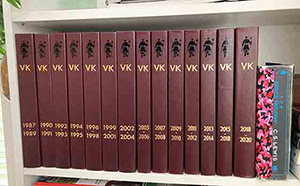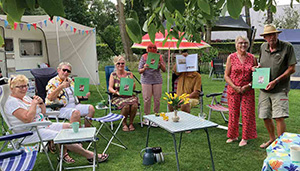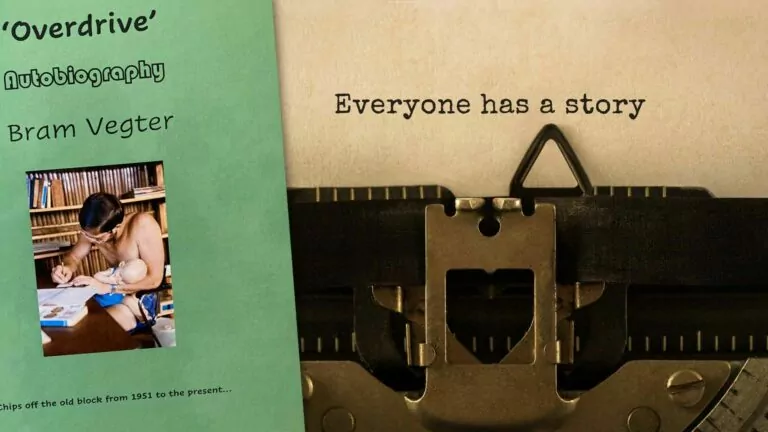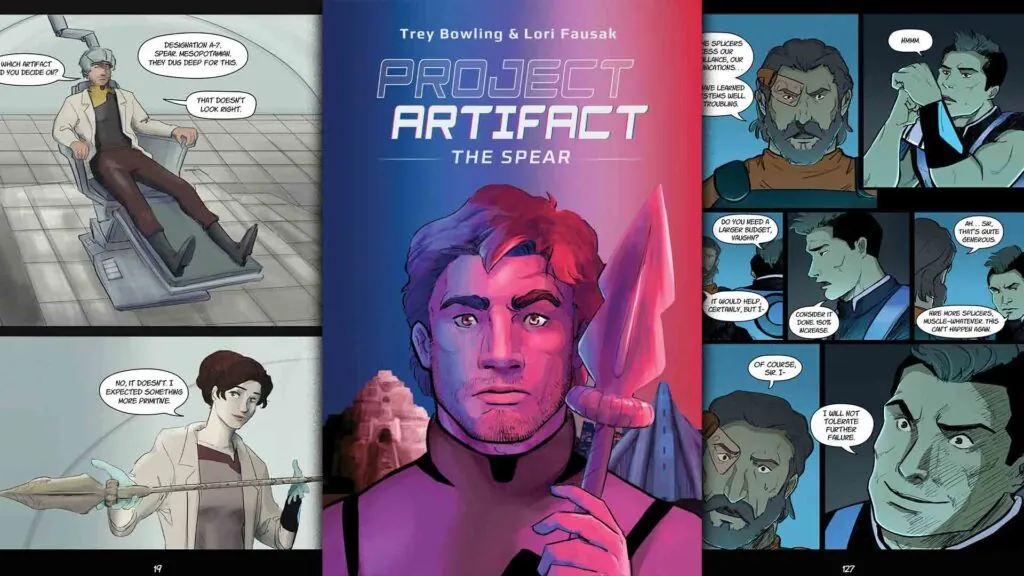Sharing your history is sharing His story
…things that we have heard and known, that our fathers have told us.
We will not hide them from their children, but tell to the coming generation
the glorious deeds of the LORD, and His might, and the wonders that He has done.
– Psalm 78:3-4.
*****
There are half a dozen people in my group of older friends who have written their autobiography, or who are working on completing their life story in print. When someone commented “you should write some of those stories down” they responded!
And that they did has benefits for both themselves and their children.
How so?
Writing might seem an artform slowly losing ground in a world of emoticons and AI-written essays. Fortunately, for some people, writing is still a joy to do, and an even greater pleasure to read again later. Young people who keep a daily journal can attest to this (except perhaps on their wedding day, when someone roasts them with readings from their journal pages). Words are like pictures in that they tend to bring back memories; good and bad. We can enjoy our own writing.
And others’ words can place you in the shoes of someone dear to you. Imagine reading a story that your grandpa or grandma wrote many years ago. It helps you to understand who they are, and how they lived their life in those days, and perhaps even why they are the way they are.
Writing history

37 years of Bram Vegter’s extended family’s chronicles, bound in some 15 volumes, there for children and grandchildren to enjoy
Writing your family history doesn’t need to be a solitary effort. My Dutch family members started publishing our own chronicles in 1987 and kept it going (monthly, and later bi-monthly) until 2024. It was kept “in-house” which enabled us to write freely and openly, and we did. These 37 years of chronicles, which are bound in some 15 volumes (!), are wonderful to browse through and relive all the weddings, birth announcements, vacations, highlights and low points in the lives of my family members. These many years also cover the time when computers and phones were introduced, and you can imagine how things changed because of these and other incoming electronic devices.
You can see the changes as you turn the pages, from the old typewriter font to a variety of new typefaces we could select from, and from photocopies to email. The printing press invented anew!
Now the grandchildren browse through the pages and are elated when they find the page where their birth was being announced with joy! “Look Mom – this is when I was born!” And Mom looks at a relieved and tired face in a bed… with a tiny newborn on her tummy.
Your story
If you don’t have a family chronicle, you can take up the quill yourself. It takes just one to start. And the writing you do for your autobiography is your story. How and where it began.
Someone who is reading your story sixty years later lives in quite a different era. To read about your younger years and how things were then, will partly explain who you are now!
Your story can be so fascinating and encouraging for others who may not have lived close to you, or perhaps even lived in a different country. Different times, different settings, even a different church maybe. You may tell how it was when you were growing up, and these are beautiful word pictures for your descendants. “The times, they are a-changing” Bob Dylan sang years ago, and he wasn’t wrong.
This is what makes a time capsule, in the form of an autobiography, so interesting.

Some Vegter Dutch relations showing off their just-received copy of Bram’s own autobiography, Overdrive.
And there is much to write about: your family, your siblings, your friends, your church activities, your school, your neighborhood, what it was like growing up there. And then of course, what you did after your studies: where you worked, or where you traveled to, what kind of things held your interest. And for those who got married, how did you meet your better half? Explain to readers yet to be born how that went, and what has the “I do” meant to you before your spouse, and before God? We often say so little about that, and these can be fascinating, fun and encouraging stories. Especially for a new generation growing up in a time when marriage is becoming less common.
Then you probably want to write a bit about what you have done in life, how you have filled your time with work, perhaps some volunteer work and hobbies. Many of these move to the background as you get older, but they were once front and center in your life! They kept you occupied, and (grand)children want to read about them. What made you tick?
His story!
Ultimately, whatever you write will be His story, as God has put together your life.
In the beginning, when you were just getting started, it was perhaps a bit of a puzzle; maybe you had trouble seeing where He had you heading, and how all the pieces would fit in. Often later in life you recognize God’s hand more and more, and you begin to see how His plans for you came together… though when the picture of your life will be complete, only God knows.
It is so beautiful to pass on to (grand)children what you have gone through, how you trusted God in uncertain times, and how God often gave more than He promised you. His goodness, His grace, and His faithfulness are often more fully understood later in life, so your story can encourage younger people still figuring it out.
It is also good to relate some of the foolish things you did when you were young, and how God forgives the sins of our youth (Ps. 25:7). Often, when people become older, they tend to reminisce and look back on their life. They may regret some of the things they did when they were young. Be honest about that (without sharing all the details) and tell your children you were once (and still are) far from perfect. Then rejoice together in God’s love and forgiveness!
In these days, it has also become much easier to share information with each other. Many families now share a WhatsApp account to regularly keep in touch with each other. This is beautiful, but it misses the rich spiritual heritage of the past. There is still nothing like really writing to help you reflect and remember.
I want to end with the first Bible verse I ever wrote on a card to a friend. It is from Proverbs 3:6 and it says: “In all your ways acknowledge Him, and He will make straight your paths.” God was there, also in my early teens. May we acknowledge Him, even to our children’s children!
So, start your Word doc today, 8.5×11 will be just fine. Write your story down – for your family.












